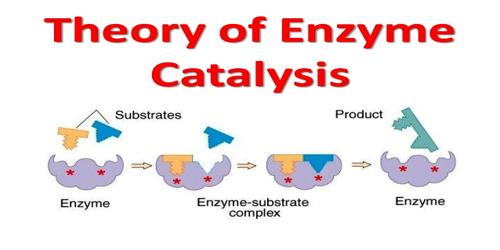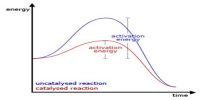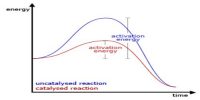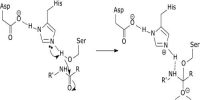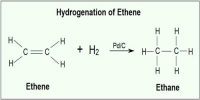Characteristic Properties of Enzyme Catalysis
Enzymes have a number of characteristic properties that make them efficient and specific catalysts for many biological reactions. Enzyme catalysis is the increase in the rate of a chemical reaction by the active site of a protein. The important ones are mentioned below.
(a) Selectivity: Enzymes are very selective in their action. This specificity makes enzymes very effective and useful in biological reactions. A particular enzyme catalyses a specific reaction out of a number of possible reactions. For example:
urease (found in soya beans) catalyses the hydrolysis of urea (carbamide) but not a substituted amide.
H2NCONH2 + H2O → CO2 + 2 NH3
(b) Efficiency: Even a small quantity of the enzyme can bring about a large amount of change in a reaction. For example, in one second one molecule of catalase decomposes about 50,000 molecules of hydrogen peroxide. This is possible because the enzyme molecule is regenerated very quickly during its catalytic activity. As will be seen below the mechanism of catalytic action of the enzymes makes this quick regeneration possible.
(c) Size: As mentioned earlier the relative molecular masses of enzyme are very large and range from 10.000 upwards. These dimensions (i.e., the size of the molecule) are in the colloidal range and cannot be classified as homogeneous or heterogeneous. They fall somewhere in between.
(d) Temperature: Enzymes operate with maximum efficiency in a small range of temperature, usually around 370 C, which is the body temperature of a healthy person. If the temperature is increased to 500 C or more enzymes become inactive.
(e) pH of the solutes: The pH of the medium has profound effect on the catalytic activity of an enzyme. The efficiency of an enzyme is maximum at a particular pH, called the optimum pH. Most biological enzymes air most efficient at a pH of about 7.4. This is the pH of blood and most other body fluids.
(f) Poisons: Enzymes are very sensitive to the presence of substances which may reduce (inhibit) or completely destroy their catalytic activity. These are called poisons, like other catalytic poisons. In the fermentation process for the preparation of ethanol, fermentation stops if the concentration of ethanol exceeds 5.5%.
